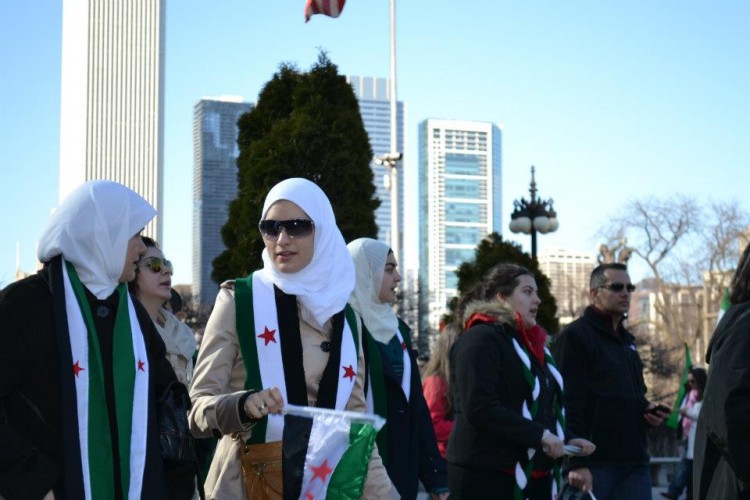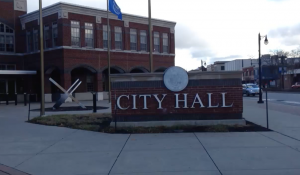
Protestors gathered in Grant Park on March 10th to demonstrate against the genocide of their people, which they attribute to the regime of Syrian President, Bashar al-Asaad, who has been accused of committing atrocities against the people of Syria.
The demonstration marked the anniversary of the first sparks of uprising from the Syrian rebel forces, and protestors gathered in commemoration, marching through Chicago’s South Loop from roughly 6 p.m to 12 a.m.
A youth activist group called the Syrian Rising Generations helped hand out fliers throughout the city. The activist group is mainly comprised of Syrian American youth that want to bring more attention to the strife of their people.
Alaa Basatnem, a 20-year-old co-founder of the youth group, says that if America establishes a no-fly zone in Syria, then Asaad will lose the vital connection with his allies Iran and Lebanon, most specifically the Lebanese combatant group, Hezbullah.
Basatnem said he and and other Syrians believe that Asaad’s military forces are galvanized by fear of Asaad and his allies, and that if Asaad loses accessibility to his neighbors, then the Syrian military forces will feel less inhibited to defect from the regime and join the dissenters.
“The idea is to cause members of the Syrian military to defect,” said Basatnem.
The Syrian protest was intended to draw Americans’ attention to the events transpiring overseas. Syrians chanted and made emotional appeals to Chicagoans with calls to action to “stop ignoring ignoring the cries of their people” and most importantly to appeal to President Barack Obama to commission a no-fly zone in Syrian airspace.
“They rape women and torture children. They break into houses and steal everything. Snipers that work for Asaad stand on roofs and shoot people every day,” said Souad Sibai, a woman from Homs, one of the most oppressed cities in Syria. Sibai said she worries for her people because global superpowers such as Russia and China are standing firmly by the dictator.
Syrians at the rally said that Facebook was instrumental in the galvanization of Syrian Americans because it presented them with access to a personal glimpse of the bedlam taking place in their homeland.
It may be a big leap to assume that American forces will be able to do much for Syrians considering China’s involvement in the conflict, but the growing global awareness of human suffering due to the escalating influence of digital culture and internet access has demonstrated its crucial role in global unification.
Syria isn’t the only troubled country that is generating attention on Facebook. Uganda has entered the spotlight in America and other western nations lately due to the video by InvisibleChildren.org that went viral, clocking millions of views on youtube.com
The humanitarian video implicated Ugandan Joseph Kony in the murder of Ugandans and the forceful induction of children into military forces. The video already has more 68 million views and has managed to successfully stir controversy all over the world.
The digital age has produced a path to overcome the limitations formerly imposed by time and space for people to organize globally by offering instantaneous access to other nations thousands of miles away. With global communication pushing the envelope further every day due to the activity of high-traffic websites such as social media megahubs Youtube, Facebook and Twitter, the turmoil in countries formerly out of the scope of American media are finding increasing prominence with American audiences.













Be First to Comment